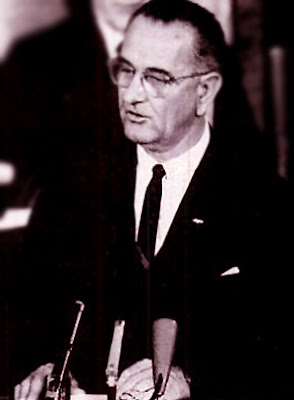by Nomad
 A couple of years ago, one of the great legislative achievements from the 1960s was all but dismantled. Strange too since only seven years before it was gutted, both parties in Congress had voted to keep this landmark legislation around for another generation. We examine how this could have happened and what have been the effects.
A couple of years ago, one of the great legislative achievements from the 1960s was all but dismantled. Strange too since only seven years before it was gutted, both parties in Congress had voted to keep this landmark legislation around for another generation. We examine how this could have happened and what have been the effects.
In American history, 7 March 1965 became known as Bloody Sunday.
It was on this day that civil rights protesters clashed with Alabama State troopers. With billy clubs and tear gas, state troopers and county possemen beat, before the eyes of the nation, unarmed demonstrators.
Despite that, two days later, a second march was organized. Dr. Martin Luther King, Jr. was there and led the marchers and this time troopers stepped aside to let them pass.
But that night, a gang of white thugs took their revenge of a civil rights activist, James Reeb. Reeb a white Boston minister, had come to join in the second march. Beaten to death by white men with clubs for his support of African American rights. Reeb became a martyr to the civil rights cause when he lapsed into a coma and died on 11 March 1965.
The entire nation shocked that such things could happen in the land of the free. What followed was remarkable, a national outcry against the activities of white racists leading to direct legislative action by Washington.
The Search for a Solution
On 15 March 1965, President Lyndon Johnson swiftly moved into action. He spoke before a joint session of Congress on a matter that was important to him and, he believed, important
to the nation. The subject was the proposed Voting Rights Act, new laws which
aimed at prohibiting racial discrimination in voting.
In certain areas of the nation, racial discrimination in
voting was a deeply entrenched problem.
It had become “an insidious and pervasive
evil," the result of an "unremitting and ingenious defiance of the
Constitution.” The time had come to rectify this long-standing problem as
the federal government sometimes had to do.




